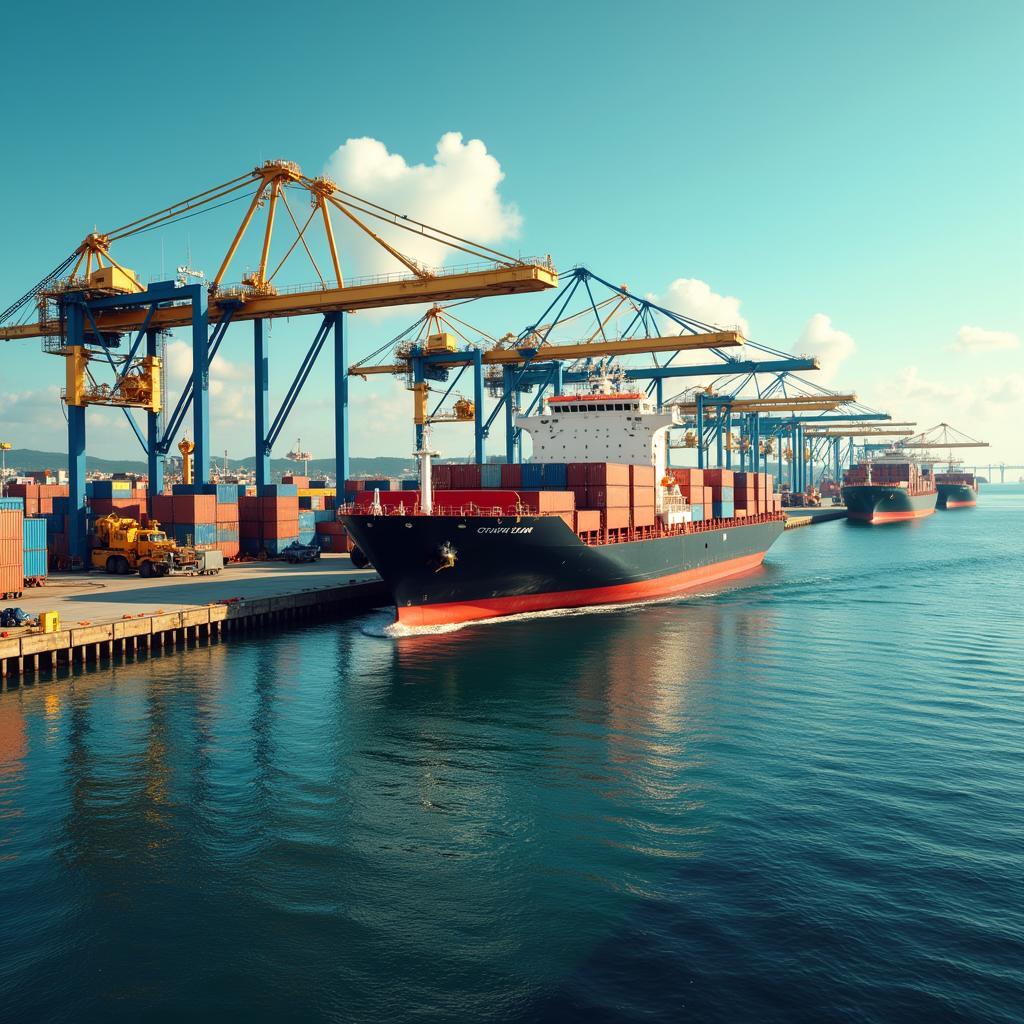African Countries Exports and Imports: A Deep Dive into Trade and Development
Africa, a continent brimming with diverse cultures and vast resources, is increasingly integrated into the global marketplace. Understanding the intricacies of African countries’ exports and imports is crucial for deciphering the economic landscape of this vibrant continent. This article delves into the key products, trading partners, and factors shaping Africa’s trade flows, offering valuable insights into its economic trajectory.
Unveiling Africa’s Export Basket: From Raw Materials to Manufactured Goods
Historically, African countries have been renowned for their abundance of natural resources, forming the backbone of their export economies.
- Oil and Minerals: Nations like Nigeria, Angola, and Algeria are major oil exporters, while the Democratic Republic of Congo, South Africa, and Zambia are key players in the global mineral market, exporting copper, diamonds, and cobalt.
- Agricultural Products: Coffee, cocoa, tea, cotton, and tobacco remain significant exports for many countries, especially in East Africa. Ivory Coast and Ghana are leading cocoa producers, while Kenya and Ethiopia dominate the coffee market.
- Emerging Industries: In recent years, there’s been a notable shift towards value addition and diversification. Manufacturing, particularly in textiles, automotive, and technology, is gaining traction, with countries like Morocco, South Africa, and Kenya leading the way.
 African Mine Workers
African Mine Workers
This evolution reflects a conscious effort to move beyond raw material dependency and foster sustainable economic growth.
Decoding Africa’s Import Landscape: Meeting Domestic Demand and Fueling Growth
While exports play a crucial role, understanding African countries’ imports is equally important to grasp the full picture of their economic activities and development aspirations.
- Machinery and Equipment: As African nations strive to industrialize and modernize their infrastructure, the demand for machinery, vehicles, and technological equipment remains high.
- Manufactured Goods: Consumer goods, electronics, and pharmaceuticals form a significant portion of imports, reflecting the growing middle class and their evolving consumption patterns.
- Food Products: Despite its agricultural potential, Africa still relies on food imports, particularly wheat, rice, and processed foods, to meet the needs of its burgeoning population.
 Bustling African Port
Bustling African Port
The composition of imports highlights the ongoing challenges of food security, industrial development, and meeting the demands of a rapidly growing and urbanizing population.
Navigating the Global Trade Network: Africa’s Key Trading Partners
Africa’s trade relationships extend beyond its borders, with key partners influencing its economic trajectory.
- China: As Africa’s largest trading partner, China’s influence is undeniable. It invests heavily in infrastructure projects and imports significant quantities of oil, minerals, and agricultural products from Africa.
- European Union: Historical ties and geographical proximity make the EU another crucial trading bloc for Africa. It’s a key export destination for agricultural products and a source of manufactured goods, technology, and investment.
- United States: While its trade volume with Africa is comparatively lower, the US remains a significant partner, particularly in sectors like energy and technology.
 African and Chinese Business Leaders
African and Chinese Business Leaders
Understanding these dynamics is essential to analyze the opportunities and challenges presented by globalization and evolving geopolitical landscapes.
Looking Ahead: Trends Shaping the Future of African Trade
- The African Continental Free Trade Area (AfCFTA): The AfCFTA, aiming to create a single market for goods and services across Africa, holds immense potential to boost intra-African trade and foster economic integration.
- Technological Advancements: Digital platforms are transforming trade, offering new avenues for African businesses to access global markets and participate in e-commerce.
- Sustainable Development Goals: Increasingly, trade is viewed through the lens of sustainability, with a focus on ethical sourcing, environmental protection, and social responsibility.
These trends highlight the dynamic nature of African trade, driven by internal ambitions and external factors. By understanding the complexities of African countries’ exports and imports, we gain valuable insights into the continent’s economic progress, development challenges, and its evolving role in the global marketplace.
Don’t hesitate to reach out for assistance. Contact us at:
Phone: +255768904061
Email: kaka.mag@gmail.com
Address: Mbarali DC Mawindi, Kangaga, Tanzania.
Our dedicated customer support team is available 24/7 to assist you.



